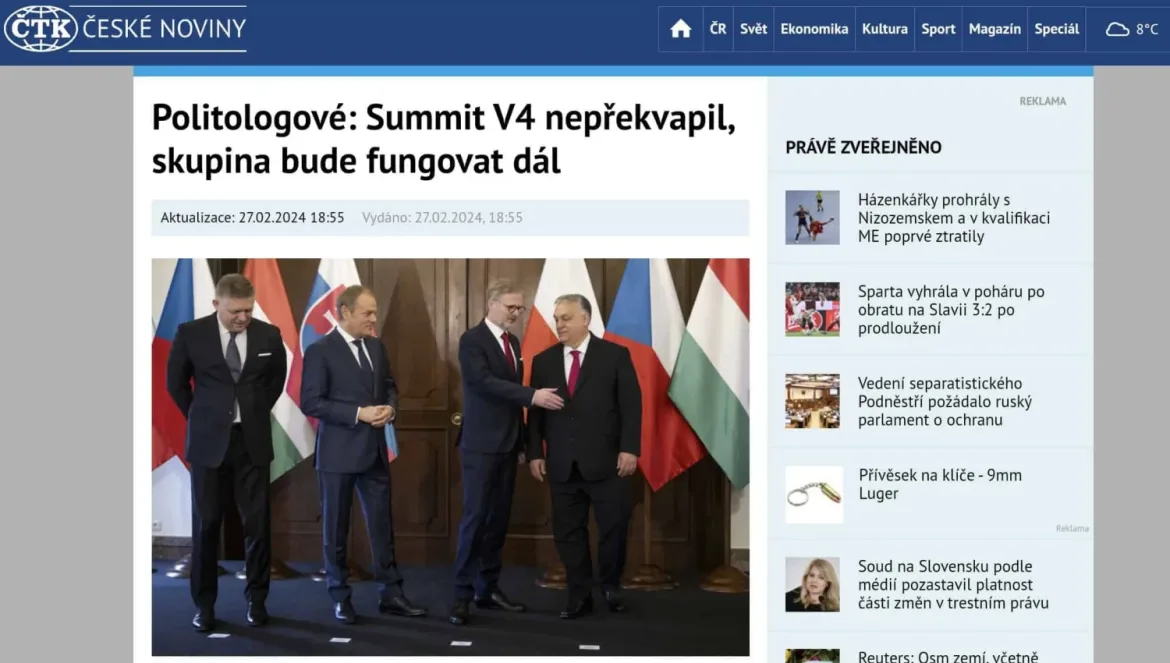PRAGUE - The results of today's meeting of the prime ministers of the Visegrad Group (V4 - Czech Republic, Slovakia, Poland, Hungary) were not surprising. Political analysts interviewed by ČTK agreed. According to them, they only confirmed the points on which the countries have differences of opinion, as well as those they see in the same way. They expect the V4 to continue functioning despite the disagreements, which mainly concern the resolution of the war in Ukraine.
In particular, the V4 countries have different attitudes towards the form of support for Ukraine. While the Czech Republic and Poland provide Ukraine with military material from army warehouses, Slovakia and Hungary refuse to do so and focus on humanitarian or reconstruction aid.
"The results of the negotiations are expected. There are disagreements, and quite significant ones, but there is a certain political will to maintain the group, among other things, precisely to prevent Slovakia and Hungary from leaning even more towards Russia," said Miroslav Mareš, a political scientist at Masaryk University in Brno..
According to him, Czech diplomacy plays the role of a kind of moderator between Poland on the one hand and Slovakia and Hungary on the other. "At the moment, I think the situation is such that the group will not be very active at the top level, there will remain contradictions, but in some other areas, which Prime Minister Petr Fiala also spoke about, it can continue to develop," the political scientist added.
According to Pavlina Janebová of the Association for International Affairs (AMO), there is a consensus especially on regional issues such as infrastructure, energy and migration. "Prime Minister Fiala also tried to present in some optimistic way the finding that they had come to two points of agreement on Ukraine. One is that Russia's invasion of Ukraine was a violation of international law, and the other is that Ukraine needs to be helped," Janebova noted. "The signal is that cooperation will persist despite the disagreements," she added.
Czech Prime Minister Petr Fiala (ODS) and his Polish counterpart Donald Tusk today stressed the need for persistent support for Ukraine in all aspects. Tusk called Russian President Vladimir Putin a war criminal and said there was no doubt who was the aggressor and who was the victim. Slovak Prime Minister Robert Fico and Hungarian Prime Minister Viktor Orbán, on the other hand, were dismissive of military aid and repeatedly spoke of the need for peace talks as soon as possible at the press conference after the meeting. But all four prime ministers agreed that their countries were not planning to send troops to Ukraine.
According to Fialy, today's meeting was frank and important, but the format of the meeting changed unexpectedly because the prime ministers wanted to discuss some issues openly on their own, without the presence of other members of the delegations. Orbán said after the meeting that Visegrád was alive. Also Tusk, who before the meeting had expressed doubts about the point of continuing the V4 format, later noted that the differences were not as fundamental as they might seem.
CTK/news.cz-Jav_07



